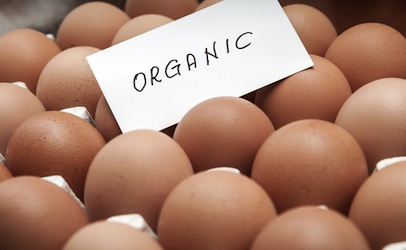That trouble Europe had last summer when Dutch egg producers began using the banned insecticide fipronil as a cleansing agent is back.
Six German states are recalling 73,000 eggs produced in the Netherlands after tests found they contained fipronil residue levels over permitted amounts. Many of the recalled eggs, sold at retail stores in Lower Saxony, Baden-Württemberg, Hesse, Bavaria, Schleswig-Holstein and North Rhine-Westphalia, have been consumed.
 names of the supermarkets selling the eggs in those areas were not made available by authorities.
names of the supermarkets selling the eggs in those areas were not made available by authorities.
Organic eggs were sampled from a farm in the Netherlands by a city laboratory in Vechta, Germany and found to contain 0.014; 0.019 and 0.007 mg/kg fipronil. European Union (EU) regulations set the permitted maximum limit at 0.005 mg/kg.
Last year, the EU reported fipronil levels in eight Member States exceeded legal limits. As many as 20 million recalled eggs from the Netherlands, Italy, Germany, Poland, Hungary, France and Greece were involved.
Egg producers admitted using the insecticide as a cleaning agent for sanitizing hen houses. The mixture used was called “Dega 16.”
Last year, eggs contaminated with the insecticide were being recalled by July 2017. Reports last summer said it was being used to combat red mite infestations
By last Fall, European food safety agencies reported the recall of 39 products using eggs as an ingredient showing fipronil residues.
Controversy over the fipronil controversy included criticism by at least one European consumer group that claims the EU was slow in making the public aware of the problem. Belgium was the first country to go public with the issue last July 20. It took the EU bureaucracy ten more days to react.
The levels found in this year’s Vechta, Germany tests do not exceed harmful standards set by the Federal Institute for Risk Assessment. Another laboratory has confirmed the levels the German city found in the eggs produced recently in the Netherlands.
The Parma, Italy-based European Food Safety Authority (EFSA) has yet to say anything about the newly initiated German recall of eggs from the Netherlands. In May, EFSA announced that 742 of 5,000 egg and chicken samples were taken between Sept. 1 and Nov. 30, 2017, by Member States contained residues in quantifies exceeding legal limits, almost all related to fipronil.
Meanwhile, the trade association known as British Lion Egg Processors called for more random egg testing. It expressed disappointment about another problem with European eggs being reported.
“Unfortunately, we are not surprised by these developments as we have been concerned for some time that the initial issues following the product recalls we saw last year have not been thoroughly resolved,” said Andrew Joret, who chairs the British Egg Industry Council. He said the EFSA must “take decisive action” to protect UK’s food bus.
(To sign up for a free subscription to Food Safety News, click here.)
